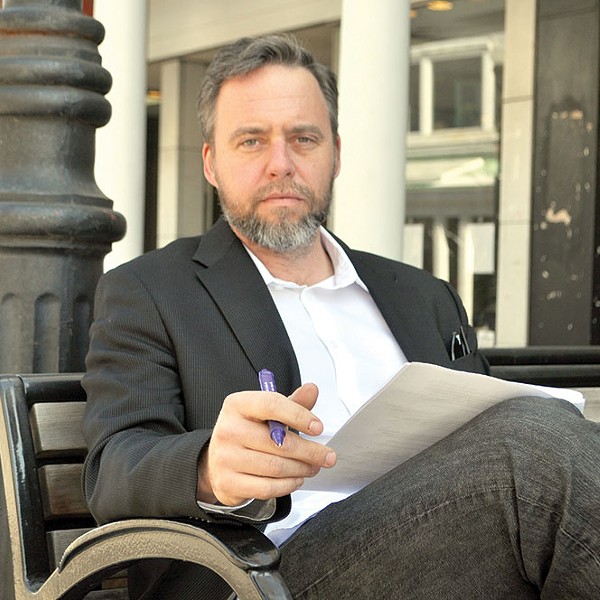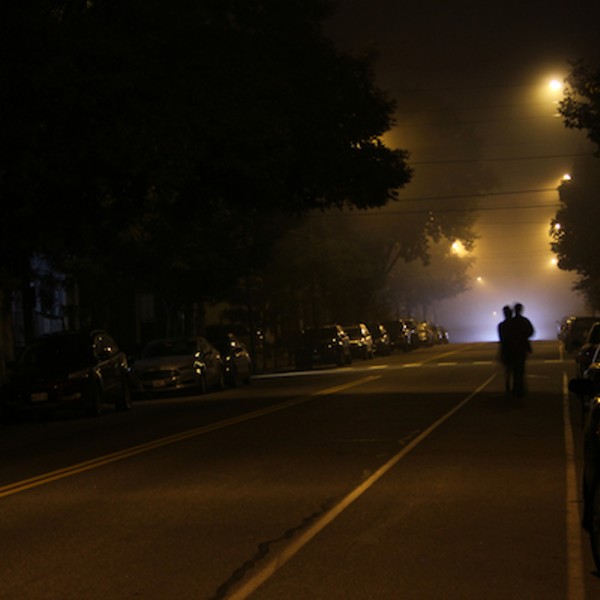—David Foster Wallace, “The Suffering Channel”
Just as I was ready to make my peace with an early winter, in its cruelest guise of evening-in-afternoon, thanks to the end of Daylight Savings Time, the weather turned temperate again. I could fool myself for a few more weeks that I wouldn’t have to adjust, again, to a New York winter after the glories of a dry, hot summer. I spent three weeks without a jacket, kicking through the fallen leaves while the last of their golden compatriots swung brightly in the breeze like yellow apples. Such was my giddiness of mood that upon finding yet another orange envelope tucked under my windshield wiper—I composed spontaneous haiku: A fallen leaf / resting on my windshield / it was a parking ticket.*
As I write this on the eve of Thanksgiving the weather is still holding out, and I am allowed to clutch my cherished illusion that winter will not come this year. But it’s not winter itself—the bleak tapestry of dormancy, the shoveling of snow, the perilous driving, the bone-coldness that doesn’t abate until April—that gets me. It’s the period of adjustment that comes just before it. It’s the idea of having to adjust, being made to adjust that upsets me so. Enjoy the “cosmic magic carpet ride” of the seasons (as Eric Francis Coppolino does this month in Planet Waves) and the cycle of nature all you want. I’m talking about the ceaseless turn, turn, turning we are faced with in our lives.
If it sounds like I’m arguing for stagnancy, I probably am. Why is change viewed as an inherent good? As Clive Thompson writes in “Nothing Grows Forever” (News & Politics), the Earth cannot support endless economic growth. Heretical as it is to say it in the framework of capitalism, perhaps a bit of economic stagnation—a little leveling off of our consumption patterns and population—might be what’s needed to save the planet. Thompson quotes economist Peter Victor on this score: “We’ve had 125,000 generations of humans, but it’s only been the last eight that have had growth. So what’s considered normal? I think we live in very abnormal times.”
Author and publisher Michael Korda wonders whether the adjustment of our ideas over the past century about what constitutes a hero is itself in need of adjustment. In his new biography, Hero: The Life and Legend of Lawrence of Arabia, Korda draws a bright line between classical and modern heroism. As Korda tells Vanni Cappelli (Books): “Lawrence was a hero in the classical sense, without necessarily any respect or concern for society. Like Achilles, he went to war because he wanted to project himself as a model of excellence. We have delegated heroism to a group of people who will do it for us. Lawrence knew the world was dangerous; his experience taught him, if nothing else, the tenuous quality of life.”
Some adjustments, like the rise of Community Yoga, are clever responses to changing realities, like the “new economy,” viz: most of us have less money than before. As Wendy Kagan reports (Whole Living), yoga studios across the region are offering classes for a third of their regular price, or on a pay-what-you-can basis. This is in line with the yogic philosophy of seva, or selfless service, and the Hudson Valley’s yoga teachers are enthusiastic about keeping the doors of their studios open to all. “The group energy can be very healing,” says Lea Garnier of Sage Healing Center for the Arts in Woodstock. “No one should be turned away from healing on any level.”
Another who knows something about compassion is Wavy Gravy, who co-founded the Seva Foundation in 1978 to bring medical relief to people in third-world countries. Most of us know Mr. Gravy better from his stint as the emcee at the Woodstock festival. Gravy, who began life as Hugh Romney in East Greenbush, outside of Albany, is a master of adjustment. A biopic of his evolving existence, Saint Misbehavin’: The Wavy Gravy Movie, will be screened at Upstate Films in Woodstock this month, followed by a Q&A with the director and the man himself. Sparrow interviewed the gravy eminence of hippie culture about The Electric Kool-Aid Acid Test, and drawing Buddhas and rainbows with children, among other diverse strains of digressive conversation.
One adjustment I ask of you, kind reader, before we part. Our poetry section edited by Phillip Levine, is a powerhouse every month. But in this issue we have a special treat, Philip Pardi’s “The Roofers,” from his Brittingham Prize-winning collection, Meditations on Rising and Falling. Adjust your preconceived notions of what poetry is and immerse yourself in the intensely observed scene that calls to mind nothing less then Breughel’s Landscape with the Fall of Icarus. Being able to publish a poem like “The Roofers” makes all the indignant little adjustments I am forced to make infinitely more palatable.
* This is a blatant rip-off of the 17th-century Japanese haiku master Matsuo Basho’s poem: “A fallen flower / returning to the branch / it was a butterfly.” Apologies to Basho.


















